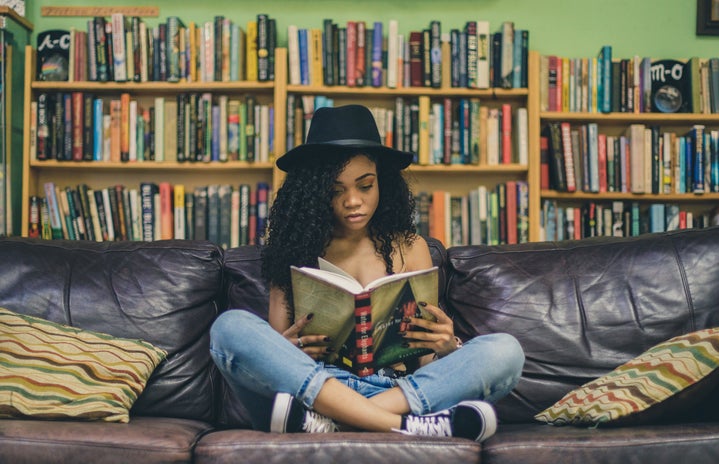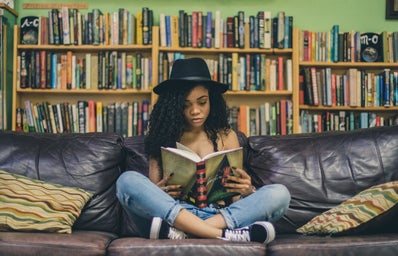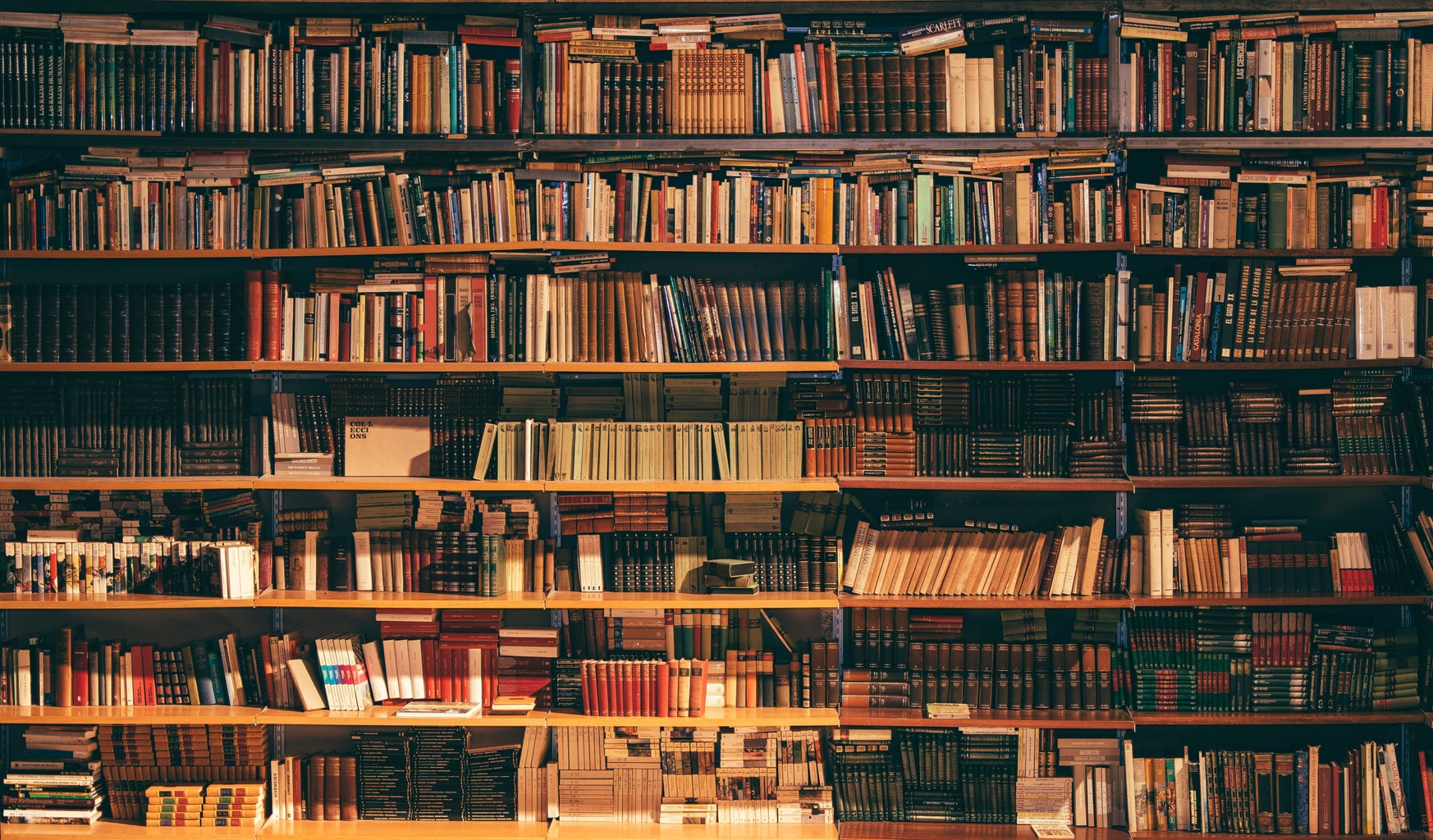One crucial thing we can do as feminists is educate ourselves about the movement and how the motivations and aims of feminism have changed over the years. With hundreds of books written on the subject, with many different perspectives and focuses, it can often be difficult to know where to begin. You may find the ten books below to be a good starting point: some are fiction, some non-fiction, some from the last couple of years, and some from much earlier.
- A Room of One’s Own, Virginia Woolf
Virginia Woolf was never overly enthusiastic about being called a feminist, but within this essay she discusses some of the most important concerns for women-aligned and non-binary individuals, many of which are of central concern today: Independence, income, and education. The essay was first published in 1929 and was based on two lectures Woolf gave at the University of Cambridge. The title of the book came from Woolf’s belief that for a woman to be able to write professionally, “a woman must have money and a room of her own.”
- Women and Power, Mary Beard
You might be wondering why I have included a book written by a woman better known as a Classicist, and perhaps it is an odd choice. But in this short manifesto, Beard explores how women have been side-lined and silenced since the beginning of Western Literature. With her trademark wit, Beard explores how the patriarchy has manipulated the stories and actions of so many women, from Medusa to Hillary Clinton. There are sure to be many examples that will encourage you to revisit previous misconceptions about these women.
- The Handmaid’s Tale, Margaret Atwood
This is a piece of fiction I am sure you have heard of – if only thanks to the Hulu series of the same name. Atwood’s book is set in a dystopian world in the republic of Gilead and follows the character of Offred and her life has a handmaid: a government assigned role designated for the creation of children. The book explores patriarchy, individuality, and the loss of female agency. This novel and its world have often been used as a reference point when campaigning against the introduction of legislation specifically designed to supress the reproductive rights of those with uteruses. Although incredibly dark and bleak, it is worth the read, as although the world and the characters are fictional, its ideas (handmaids and the institutions used to enforce them) have all existed in our world at one time or another.
- Girl Up, Laura Bates
This book has an incredibly special place in my heart. Eight years ago, my sister and I attended a talk from a journalist called Laura Bates who introduced the project she began a few years earlier, ‘the everyday sexism project’, and the responses, good and bad, she received from it. (She also has a book on this project with the same name that I would highly recommend.) At the end of the talk, she mentioned her new book, Girl Up, which explores the pressure around appearance and love/relationships that girls face due to the media. When the talk finished, my sister and I bought the book. We devoured it, and ever since then have been proud feminists.
- Invisible Women, Caroline Criado-Perez
Invisible Women is a fantastic piece that exposes how data biases have designed our world specifically for men, and disadvantaged the rest of the population. From the important things to the little mundane things, like seatbelts, Criado-Perez takes us through statistics, revealing how certain pieces of data are discarded or completely ignored. Do not let the mathematical side of the book scare you off; Criado-Perez is brilliant at breaking the maths down into smaller, more manageable pieces of information so that the larger picture is understandable for those of us (like me) who think that Maths makes absolutely no sense.
- We Should All Be Feminists, Chimamanda Ngozi Adichie
This essay by Nigerian writer Chimamanda Ngozi Adichie talks about what it means to be a feminist in the 21st century. Adichie highlights and responds to the increasing use of ‘feminist’ as an insult, reminding readers that feminism is fundamentally about equality and the same opportunity for all to achieve their potential. Her essay challenges many of the counter-arguments that feminists face, such as the idea that elevating the position of women in society will take away opportunities from men. If you are more of an aural learner, I recommend also watching her TED talk from which the essay was adapted.
- A Vindication of the Rights of Women, Mary Wollstonecraft
Published in 1792, this is the oldest piece on this list, but certainly remains one of the most influential. Written by Mary Wollstonecraft, a proto-feminist, she called for the equality of the sexes and the education of women. When first published, it was well received and would later go on to be a major influence of the 19th century suffragette movement. Since the term feminist did not exist until much later after Wollstonecraft’s death, it is difficult to call her a feminist. Feminism has grown to be much more inclusive in recent years (of people of colour, those outside the gender binary etc), but many of the ideas she expresses in this work planted the seed for modern feminism.
- I am Malala, Christina Lamb and Malala Yousafzai
There are few people who have not heard of Malala Yousafzai and her incredible bravery in standing up to the Taliban. This book tells the story of how she became a voice for the girls around the world fighting for the right to an education. Yousafzai’s work is divided into four parts; the first is about her childhood with her family in the Swat valley, the second recounts the rise of the Taliban, the third the assassination attempt on her life in response to her activism, and the fourth her recovery and new life in England. Although many are familiar with her story, it is worth the read as a reminder of what so many are still fighting for across the world.
- The Colour Purple, Alice Walker
The Colour Purple is a novel written in 1982 that has often been the target of censors in America due to its explicit content. The book follows the character of Cecile, a fourteen-year-old African American girl during the 1900s who is physically and sexually abused by her father. Readers follow her life as she encounters racism and sexism, and attempts to make a better life for herself and her family. Though you should be aware of its dark subject matter, Walker’s novel is a worthwhile read for its exploration of the effect of intersectional identities on life experience and oppression.
- Men Who Hate Women, Laura Bates
I already put one of Bates’ works on this list, but this is definitely worth a read. In her newest book, she explores the dangers of a recent extremist group: the involuntary celibate, or ‘incels’. Bates’ book is an exposé of the misogyny of social media that explores the rhetoric of such individuals and how this translates into the real world. As always, Bates’ work is raw and uncensored, and in this context even more so.
From manifestos to works of fiction, this list of books hopefully covers a range of topics in relation to feminism to get you started. On this list, I hope you have discovered at least one work that you were unfamiliar with – and maybe you should start with that one. Of course, these recommendations are only a starting point and in no way cover all aspects of the concerns of feminism. Happy reading!


